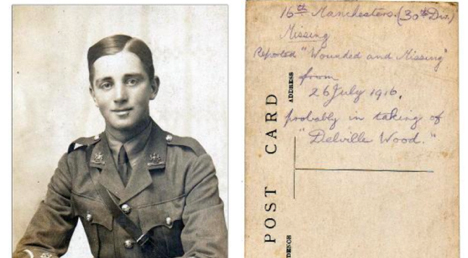
Many years ago I was working with my students on an experimental project, adapting an early twentieth-century photo album as an interactive website, when we came upon a picture of a young soldier. He was photographed alone, in uniform, standing in an empty field. Below him, someone had written three words:
Taken in France.
We sat there staring at this image together for some time, searching for a narrative we could all agree upon—and couldn’t.
The photograph was taken in France, said one student.
No—he was taken prisoner in France, said another. He was missing in action.
No again, said a third. He was killed in France, and taken from his family.
Three students, three readings, three fully different, yet entirely reasonable explanations.
And a reminder that we never really know what’s going on.
The basic state of not knowing is compounded in times of crisis, when our lives are so deeply disrupted. Roles suspended, routines upended, we’re shellshocked by the stress of having to put new systems in place—systems that map, often poorly, to our former behaviors.
Under ordinary conditions, for example, the process of making work in the studio is guided by some kind of discipline—the sculptor works from an armature, the designer builds from a grid—all frameworks that support an ensuing exploration. Eliminate that central mechanism, and you’re in operational free-fall: untethered to reality, something’s missing.
And when that actual something is hard to pin down, everything is missing.
This cycle of perpetual disorientation is not unlike something psychologists call ambiguous loss. Caught between presence and absence, you’re contending with an emptiness that you can’t quite identify, with questions you can’t name, with answers you can’t possibly find. You feel confused, ashamed, even stigmatized by what you can’t understand, let alone control, and because whatever it is you’re grieving has no definition, you feel lost.
What’s particularly difficult here is that the grief attending such loss is kicked into sensory overdrive not just because you can’t find clarity, but because you can’t find closure. You miss what you can't have—and you know it—which makes you miss it even more.
Sound familiar?
Ambiguous loss was first used in the 1970s by Pauline Boss, a psychologist who studied the families of soldiers during the Vietnam war (soldiers who were, in fact, missing in action). For more than fifty years since, she’s looked broadly at what happens when roles, situations, expectations, and boundaries are uncertain. She’s studied both the paradigms and paradoxes that we cling to, the definitions we demand, and how our dependency on all of them restricts our capacity to thrive.
What’s most resoundingly clear in her work, and what’s so critical for this moment, is the degree to which closure—the definition we crave most of all—is a myth.
Perception, however, is not. It’s how we reclaim resilience, and redirect the gaze. It’s how we reverse perspective and refocus our work. It’s how we reset our own psychological boundaries when the physical ones around us have been so rattled. Shifting perspective is more than a coping mechanism: it’s a creative strategy for survival, one that demands many things, not least of which is tuning into your own self-reliance.
If we live truly, wrote Emerson, we shall see truly.
Perhaps, in the end, ambiguous loss is the loss we can not see, just as it lingers in the closure we can not find. We’re all, in a sense, missing in action just now. The missing part feels interminable, inescapable, and undeniably ambiguous. But the action part? That, it seems clear, is up to you.
The Self-Reliance Project is a daily essay about what it means to be a maker during a pandemic. Sign up to get it delivered to your inbox here.

